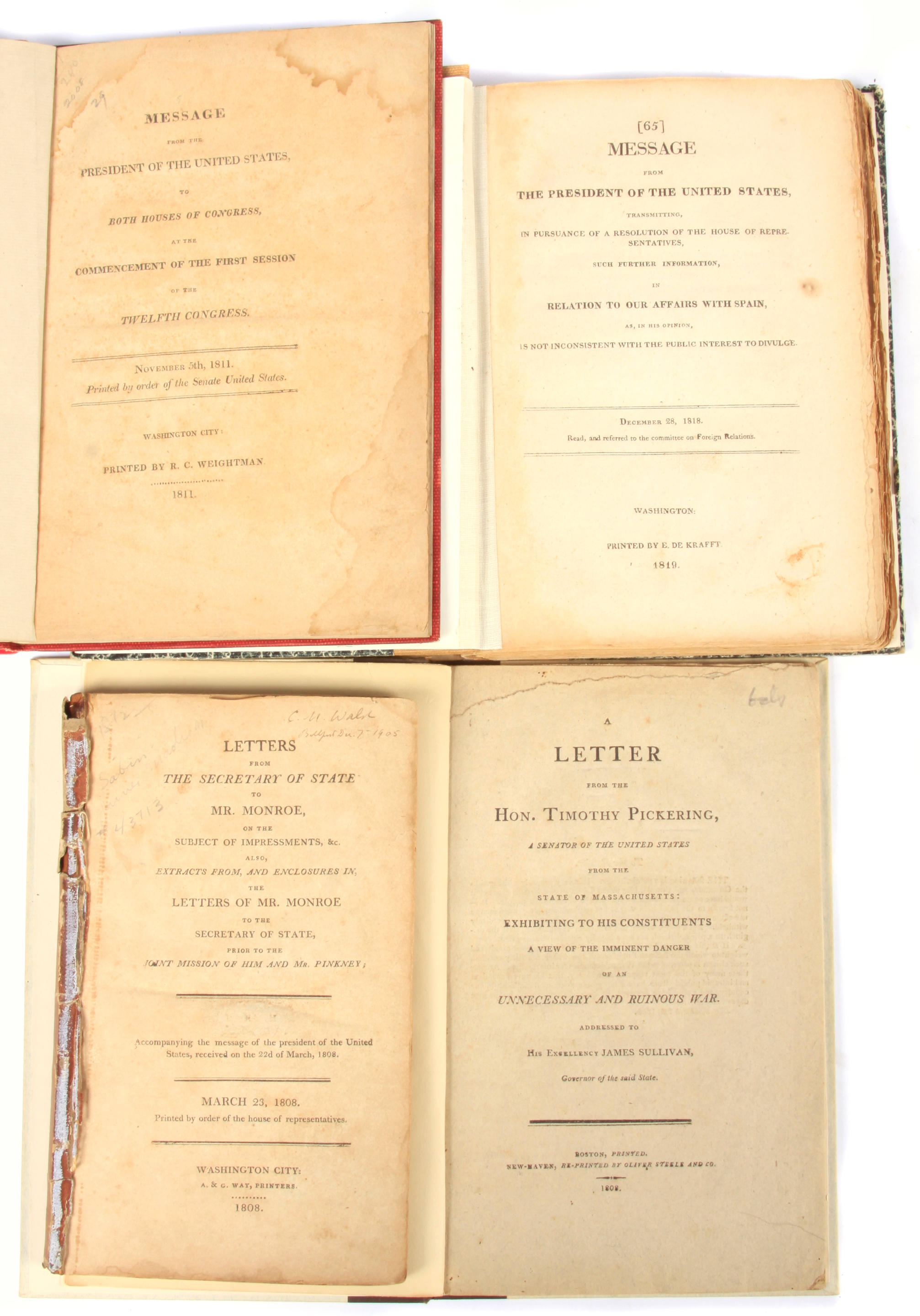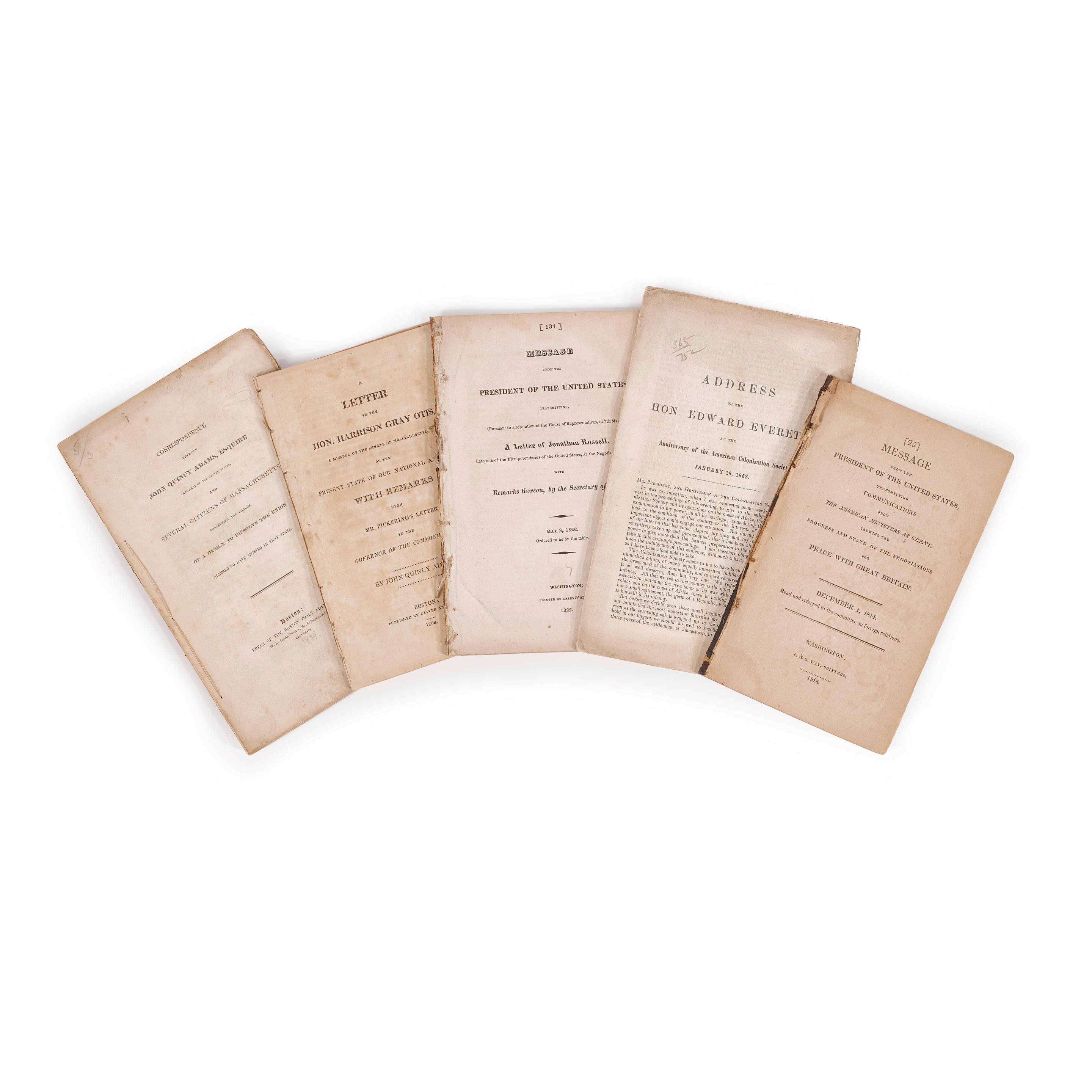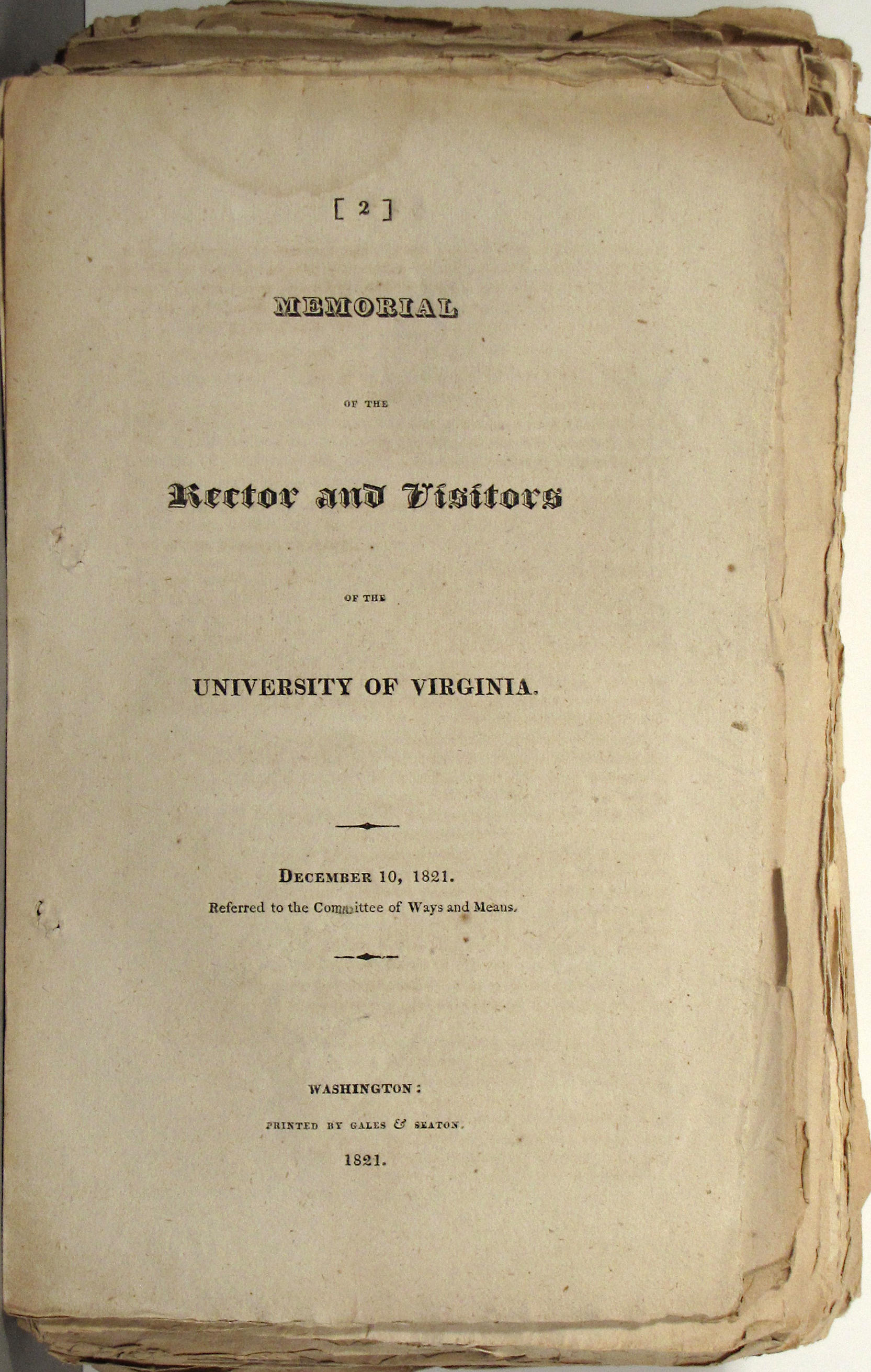MONROE, James (1758-1831). Message from the President of the United States, to Both Houses of Congress, at the Commencement of the First Session of the Eighteenth Congress. December 2, 1823 . 15 pages. -- Documents Accompanying the Message of the President of the United States to Both Houses . 206 pages. 18th Congress, 1st Session. Senate Executive Document, no. 2. Washington, D.C.: Gales & Seaton, 1823. 8 o (224 x 146 mm). Folding tables. (Browned and spotted.) Contemporary calf, uncut. FIRST EDITION IN BOOK FORM OF THE "MONROE DOCTRINE". The Congressional printing of the "Monroe Doctrine" is preceded only by the National Intelligencer 's broadside of Dec. 2, 1823. President James Monroe's 1823 annual message to Congress contained the Monroe Doctrine, which warned European powers not to interfere in the affairs of the Western Hemisphere. Buried in an otherwise routine annual message delivered to Congress by President James Monroe in December 1823, Monroe warned European nations that the United States would not tolerate further colonization or puppet monarchs. The doctrine was conceived to meet major concerns of the moment, but it soon became a watchword of U.S. policy in the Western Hemisphere. "The threat of intervention by European powers to restore Spain's revolting American colonies, and the aggressive attitude of Russia on the Northwest Coast of America, caused Monroe to declare in his annual message to Congress of December 2,1823: 'The American continents, by the free and independent condition which they have assumed and maintained, are henceforth not to be considered as subjects for future colonization by any European power' and that European intervention in this hemisphere could not be viewed 'in any other light than as the manifestation of an unfriendly disposition toward the United States.' The message also disclaimed any intention of the United States to take any part 'in the wars of the European powers' or 'in matters relating to themselves,' i.e. the European powers. This declaration was at first viewed by the European powers with irritation and contempt, and there were minor violations. Polk reaffirmed the doctrine in 1845 and 1848, and after the Civil War the principal became better established when fear of action by the United States was a factor in the decision of France to withdraw its troops from Mexico" (Grolier American ). "In addition to containing the notable first enunciation of the 'Monroe Doctrine', one of the accompanying documents gives General Gaines' report on the upper Missouri campaign against the Arikaras" (Howes). Bound at end are several other Congressional reports for 1823. American Imprints 14639; Eberstadt 130:396; Grolier American 33; Howes M-749; Streeter sale III:1735.
MONROE, James (1758-1831). Message from the President of the United States, to Both Houses of Congress, at the Commencement of the First Session of the Eighteenth Congress. December 2, 1823 . 15 pages. -- Documents Accompanying the Message of the President of the United States to Both Houses . 206 pages. 18th Congress, 1st Session. Senate Executive Document, no. 2. Washington, D.C.: Gales & Seaton, 1823. 8 o (224 x 146 mm). Folding tables. (Browned and spotted.) Contemporary calf, uncut. FIRST EDITION IN BOOK FORM OF THE "MONROE DOCTRINE". The Congressional printing of the "Monroe Doctrine" is preceded only by the National Intelligencer 's broadside of Dec. 2, 1823. President James Monroe's 1823 annual message to Congress contained the Monroe Doctrine, which warned European powers not to interfere in the affairs of the Western Hemisphere. Buried in an otherwise routine annual message delivered to Congress by President James Monroe in December 1823, Monroe warned European nations that the United States would not tolerate further colonization or puppet monarchs. The doctrine was conceived to meet major concerns of the moment, but it soon became a watchword of U.S. policy in the Western Hemisphere. "The threat of intervention by European powers to restore Spain's revolting American colonies, and the aggressive attitude of Russia on the Northwest Coast of America, caused Monroe to declare in his annual message to Congress of December 2,1823: 'The American continents, by the free and independent condition which they have assumed and maintained, are henceforth not to be considered as subjects for future colonization by any European power' and that European intervention in this hemisphere could not be viewed 'in any other light than as the manifestation of an unfriendly disposition toward the United States.' The message also disclaimed any intention of the United States to take any part 'in the wars of the European powers' or 'in matters relating to themselves,' i.e. the European powers. This declaration was at first viewed by the European powers with irritation and contempt, and there were minor violations. Polk reaffirmed the doctrine in 1845 and 1848, and after the Civil War the principal became better established when fear of action by the United States was a factor in the decision of France to withdraw its troops from Mexico" (Grolier American ). "In addition to containing the notable first enunciation of the 'Monroe Doctrine', one of the accompanying documents gives General Gaines' report on the upper Missouri campaign against the Arikaras" (Howes). Bound at end are several other Congressional reports for 1823. American Imprints 14639; Eberstadt 130:396; Grolier American 33; Howes M-749; Streeter sale III:1735.















Testen Sie LotSearch und seine Premium-Features 7 Tage - ohne Kosten!
Lassen Sie sich automatisch über neue Objekte in kommenden Auktionen benachrichtigen.
Suchauftrag anlegen